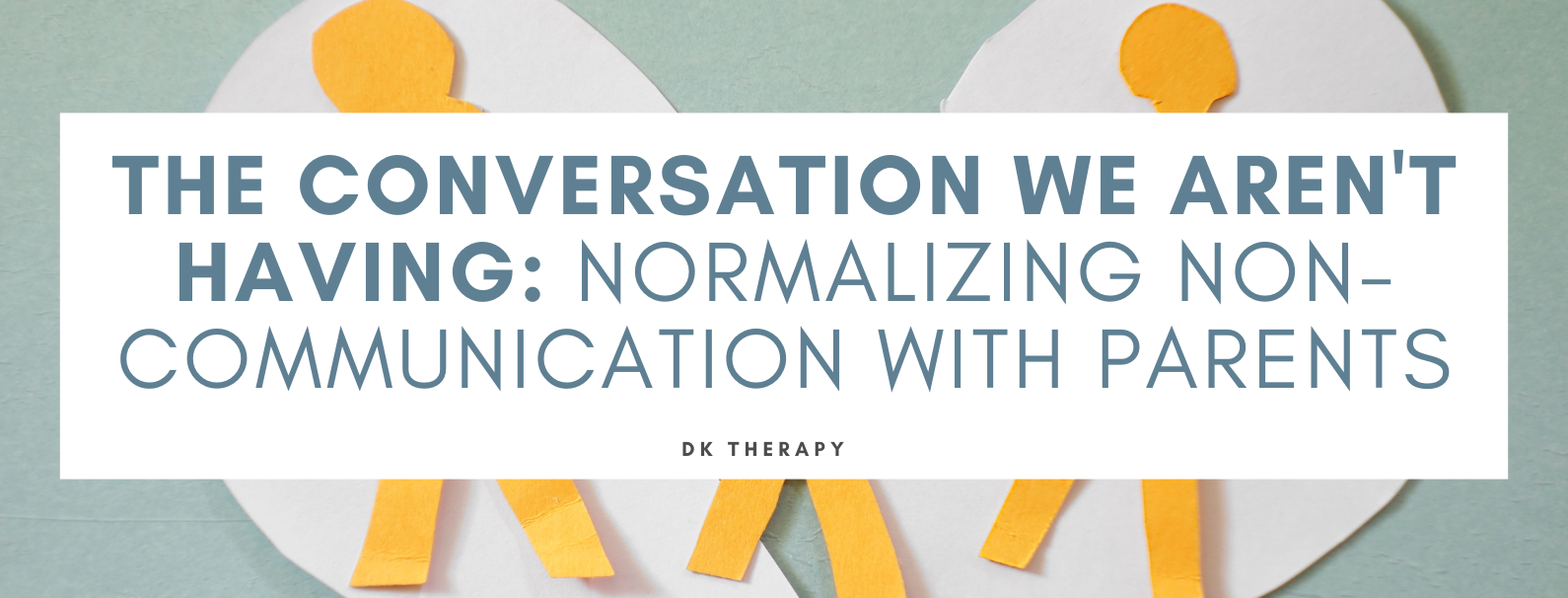
Communication is essential in any healthy relationship, especially the one between parents and children. But what happens when this component of the relationship falters and conversations become incredibly strained or even non-existent? Non-communication with parents is a difficult topic to address, but it’s a reality for many individuals.
If you’re in the middle of navigating this complex situation, keep reading to learn more about non-communication and how to handle the struggles that come from it.
Understanding Non-Communication
 Non-communication with parents can take several forms, from avoiding certain topics to complete silence. It’s important to understand that when this occurs, it isn’t always due to a lack of love or care. Instead, non-communication often comes from unresolved issues, differing values, or emotional trauma. Sometimes, distance is the most accessible form of self-preservation.
Non-communication with parents can take several forms, from avoiding certain topics to complete silence. It’s important to understand that when this occurs, it isn’t always due to a lack of love or care. Instead, non-communication often comes from unresolved issues, differing values, or emotional trauma. Sometimes, distance is the most accessible form of self-preservation.
Several things can contribute to non-communication between parents and children. Causes may include cultural differences, past experiences of abuse or neglect, or constant strain during interactions. When a child chooses to limit or even cease communication with a parent, the impact can be profound. Feelings of guilt, resentment, and isolation can affect both parties.
Tips for Non-Communication with Parents
If you’ve limited or ceased communication with one or both parents, you’re likely dealing with a host of different feelings. You may be struggling with guilt, second-guessing yourself, or feeling like you’re overreacting. Remember, though, you took this step because you felt like you needed to. You deserve mental and emotional wellness, and no one has the right to take that from you, whether they’re your parent or not.
If you’re struggling with non-communication with your parents, here are a few simple tips to follow that may help you work through the struggle you’re having.
Self-Reflection
Take time to understand your feelings and motivations when it comes to the non-communication. Think about why you made this decision and how powerfully you felt the need to go no-contact. Reflecting on your instincts and emotions can help you approach the situation sensibly.
Establish Boundaries
Setting boundaries is a must when you feel that you need to protect yourself from harm. Determine what level of communication feels healthy for you, even if it’s none. It’s okay to limit or cease interactions if they constantly lead to emotional turmoil.
Seek Support
Ceasing communication with your parents can be isolating, as many people won’t understand where you’re coming from. You don’t have to handle all of this alone, though. Reach out to someone you trust, someone who supports you when you’re feeling the need to vent or seek validation.
Trust Yourself
When you cease communication with your parents, you may very well receive a lot of backlash. This doesn’t mean you’re wrong, not at all. It just means that others are unable to accurately put themselves in your shoes. You are the only one truly living your experience, and at the end of the day, you know what’s right for you. Trust yourself and follow your instincts.
Set Realistic Expectations
Healing takes time, and reconciliation may not happen overnight, if at all. Be patient with yourself and your parents as you make sense of the journey ahead. They might eventually be willing to compromise with you, but then again, they might not. Either way, you’re going to be okay if you take this one day at a time. Focus on progress rather than perfection, and celebrate small victories along the way.
Normalizing non-communication with parents is a journey of self-discovery and healing, where boundaries, support, and understanding play very important roles. Remember, you are not alone, and there is no one-size-fits-all approach to navigating this part of your life. By maintaining your awareness, you can honor your emotional needs, evaluate your progress, and find inner peace after going no-contact with your parents.
If you’re struggling to set boundaries with your parents, therapy can help. Reach out to us at DK Therapy to speak with one of our therapists.




